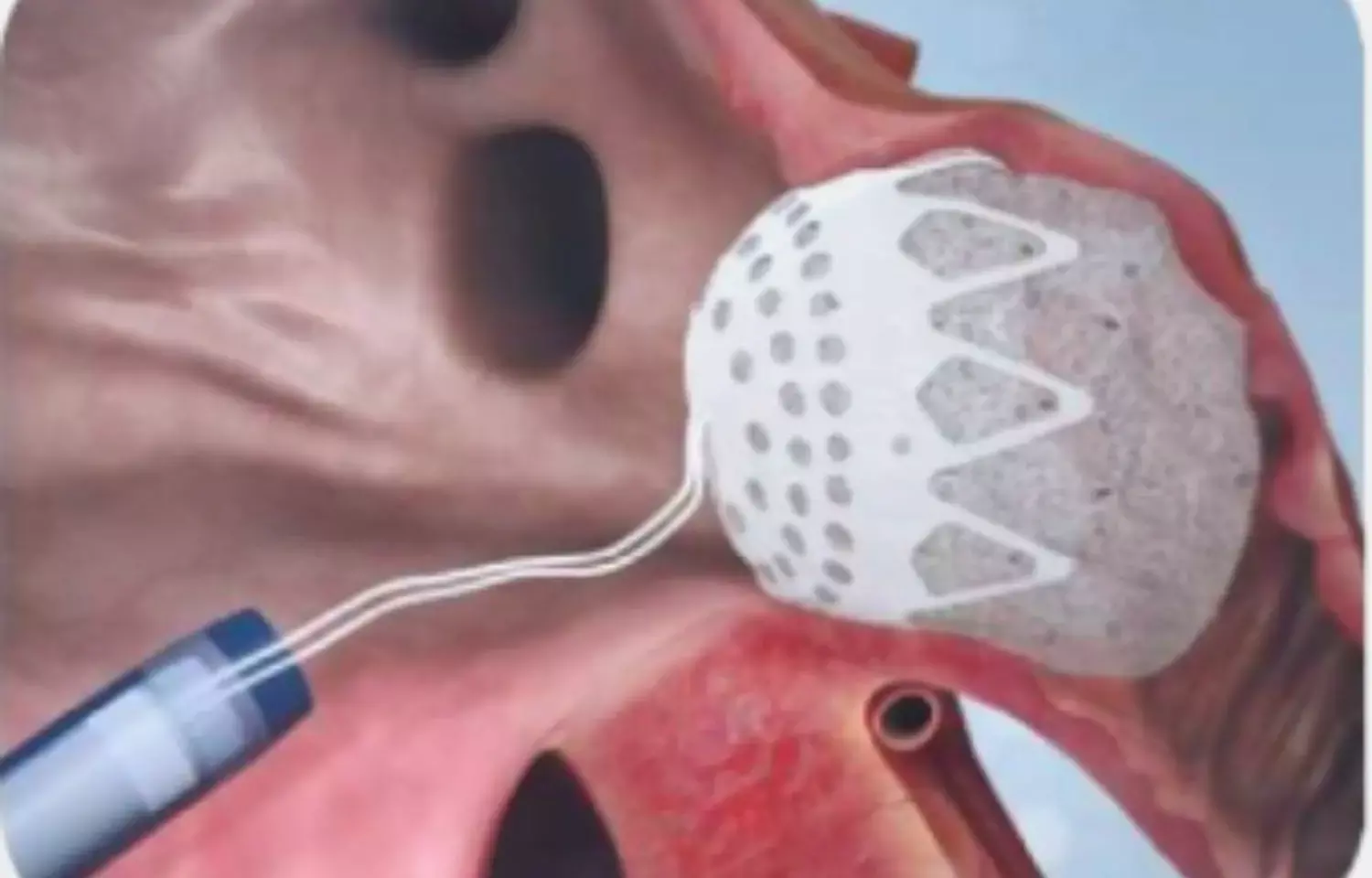- Home
- Medical news & Guidelines
- Anesthesiology
- Cardiology and CTVS
- Critical Care
- Dentistry
- Dermatology
- Diabetes and Endocrinology
- ENT
- Gastroenterology
- Medicine
- Nephrology
- Neurology
- Obstretics-Gynaecology
- Oncology
- Ophthalmology
- Orthopaedics
- Pediatrics-Neonatology
- Psychiatry
- Pulmonology
- Radiology
- Surgery
- Urology
- Laboratory Medicine
- Diet
- Nursing
- Paramedical
- Physiotherapy
- Health news
- Fact Check
- Bone Health Fact Check
- Brain Health Fact Check
- Cancer Related Fact Check
- Child Care Fact Check
- Dental and oral health fact check
- Diabetes and metabolic health fact check
- Diet and Nutrition Fact Check
- Eye and ENT Care Fact Check
- Fitness fact check
- Gut health fact check
- Heart health fact check
- Kidney health fact check
- Medical education fact check
- Men's health fact check
- Respiratory fact check
- Skin and hair care fact check
- Vaccine and Immunization fact check
- Women's health fact check
- AYUSH
- State News
- Andaman and Nicobar Islands
- Andhra Pradesh
- Arunachal Pradesh
- Assam
- Bihar
- Chandigarh
- Chattisgarh
- Dadra and Nagar Haveli
- Daman and Diu
- Delhi
- Goa
- Gujarat
- Haryana
- Himachal Pradesh
- Jammu & Kashmir
- Jharkhand
- Karnataka
- Kerala
- Ladakh
- Lakshadweep
- Madhya Pradesh
- Maharashtra
- Manipur
- Meghalaya
- Mizoram
- Nagaland
- Odisha
- Puducherry
- Punjab
- Rajasthan
- Sikkim
- Tamil Nadu
- Telangana
- Tripura
- Uttar Pradesh
- Uttrakhand
- West Bengal
- Medical Education
- Industry
Peridevice leaks after left atrial appendage closure tied to poorer 5-year outcomes: JACC

USA: Detection of postimplantation peridevice leak (PDL) a year after percutaneous left atrial appendage (LAA) closure is associated with increased thromboembolism, driven by increased nondisabling stroke but same mortality, according to an analysis of pooled data from multiple studies of the first-generation Watchman 2.5 device. The study appears in the Journal of the American College of Cardiology.
In the clincal trials of the U.S. Food and Drug Administration (FDA) of LAA closure, a postimplantation peridevice leak (PDL) of ≤5 mm (PDL≤5) was deemed as a sufficient LAA "closure." However, there is a poor characterization of the clinical consequences of these PDLs on subsequent thromboembolism.
Against the above background, Srinivas R. Dukkipati, Department of Cardiology, Icahn School of Medicine at Mount Sinai, New York, New York, USA, and colleagues aimed to assess the impact of PDL≤5 on clinical outcomes after implantation of the Watchman device.
For the purpose, the researchers used combined data from the PREVAIL (Evaluation of the Watchman Left Atrial Appendage Closure Device in Patients With Atrial Fibrillation vs Long Term Warfarin Therapy), PROTECT-AF (Watchman Left Atrial Appendage System for Embolic Protection in Patients With Atrial Fibrillation), and CAP2 (Continued Access to PREVAIL). Following this, they assessed patients with successful device implantation for PDL at 45 days and 1 year by means of protocol-mandated transesophageal echocardiograms (TEEs). Assessment of five-year outcomes was done as a function of the absence or presence of PDL≤5.
A total of 1,054 were included in the cohort: mean age 74 ± 8.3 years, 65% male, and CHA2DS2-VASc 4.1 ± 1.4.
Key findings of the study include:
- TEE imaging at 45 days revealed 634 patients (60.2%) without and 404 (38.3%) with PDL≤5, and 1-year TEE revealed 704 patients (71.6%) without and 272 (27.7%) with PDL≤5.
- The presence of PDL≤5 at 1 year, but not at 45 days, was associated with an increased 5-year risk of ischemic stroke or systemic embolism (adjusted HR: 1.94), largely driven by an increase in nondisabling stroke (HR: 1.97), while disabling or fatal stroke rates were similar (HR: 0.69).
- PDL≤5 was not associated with an increased risk of cardiovascular or unexplained death (HR: 1.20) or all-cause death (HR: 0.87).
"PDL≤5 at 1 year after percutaneous LAA closure with the Watchman device are associated with increased thromboembolism, driven by increased nondisabling stroke, but similar mortality," the researchers concluded.
Reference:
Dukkipati SR, Holmes DR Jr, Doshi SK, et al. Impact of peridevice leak on 5-year outcomes after left atrial appendage closure. J Am Coll Cardiol. 2022;80:469-483.
Dr Kamal Kant Kohli-MBBS, DTCD- a chest specialist with more than 30 years of practice and a flair for writing clinical articles, Dr Kamal Kant Kohli joined Medical Dialogues as a Chief Editor of Medical News. Besides writing articles, as an editor, he proofreads and verifies all the medical content published on Medical Dialogues including those coming from journals, studies,medical conferences,guidelines etc. Email: drkohli@medicaldialogues.in. Contact no. 011-43720751


